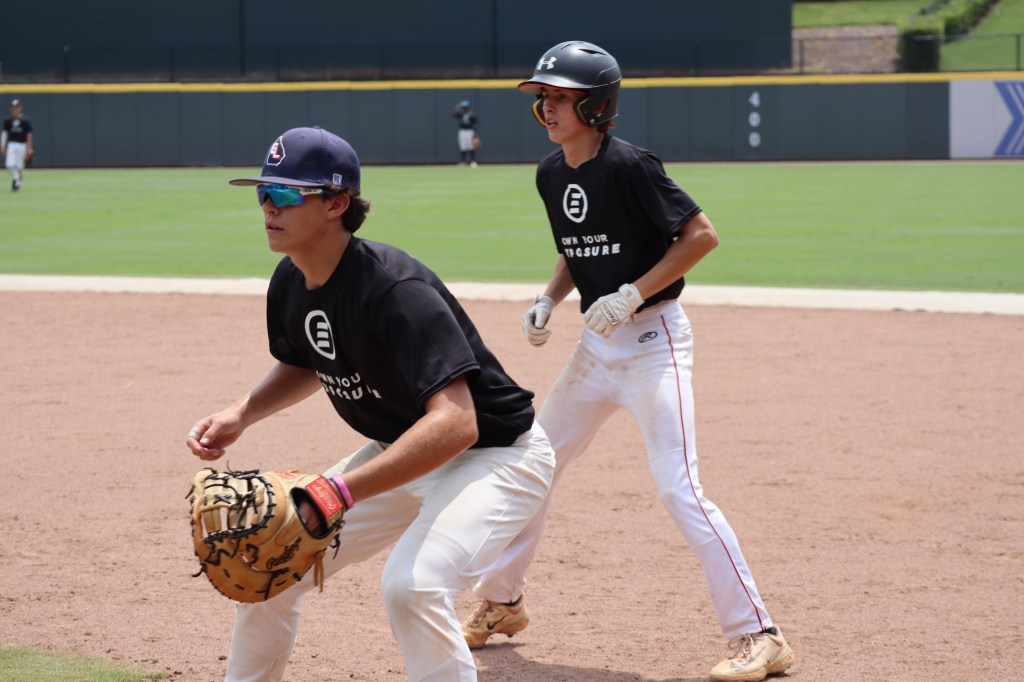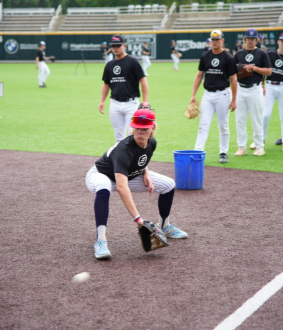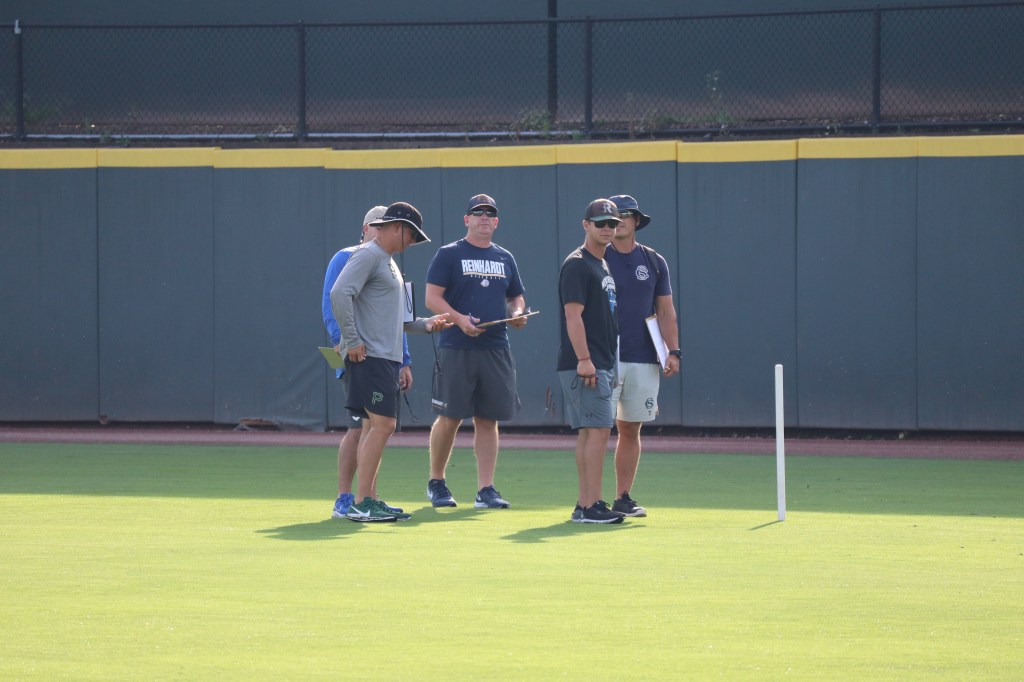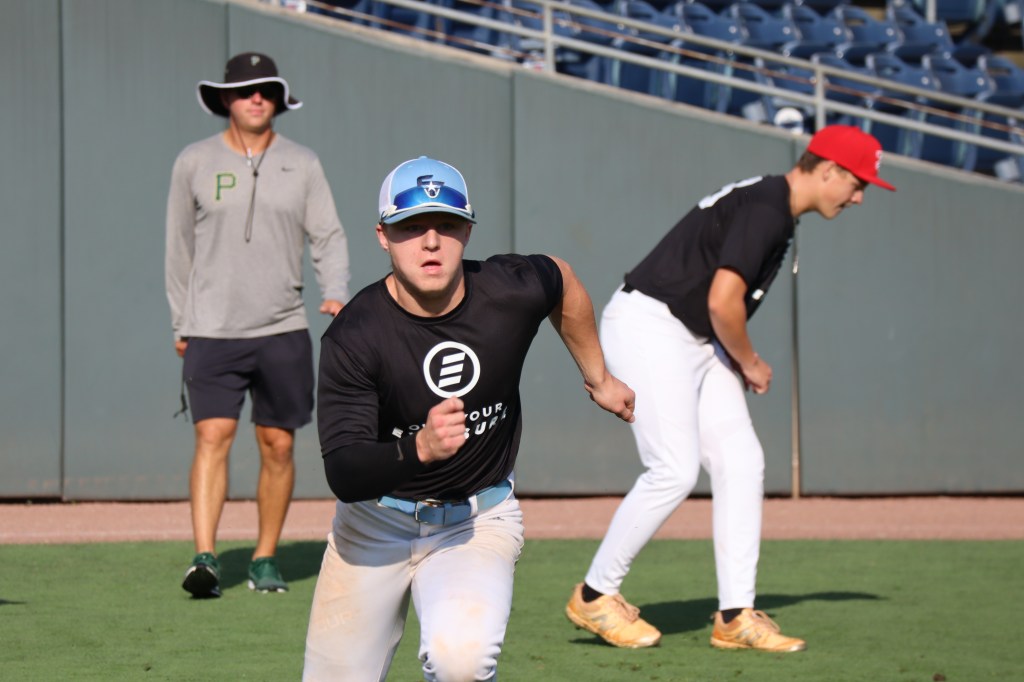You can tell a lot about a College/University’s recruiting habits by simply looking at the roster. Often times, players and parents don’t utilize the information, which is easiest to find (the roster) to their advantage while finding the right fit. It is one of the easiest ways to see if you are a good fit for the program(s) your student-athlete is interested in. Use these 10 questions when considering if the school you are looking into has a need for you!
- Does the program recruit locally, nationally or internationally?
College Recruiting Coordinators stick to what works for them. Coaches have created relationships throughout their journey in baseball, and they will use their network no matter where they are currently coaching. Coaches have their niche’s in the state, country and world, and a lot of times the won’t deviate from these because it is what has made them successful. Go to the college/university’s roster on their website and see where each kid is from. This is important to know when you are looking into a college/university because the school you’re interested in may not recruit your current location.
- Does the program recruit mostly incoming freshman or juco transfers/4 year transfers?
Each level is different with WHERE they recruit players from. You can see patterns of players they sign based on where they were before the student-athlete got to the college/university you are interested in. What percentage of the roster is Freshman? What percentage of the roster came from a two year school? And, what percentage of the roster transferred in from a 4 year school? You can see this information next to the players name on the roster, and it will give you insight into what level they are consistently signing players form.
- Is the program have a need at your position?
You may be interested in a college/university and be good enough to play there, but one thing you have to keep in mind is: Do they have a need at my position? Coaches, will only keep so many players at each position, and if there more than 2 at your position on the current roster, you may have a hard time being actively recruited. Another aspect to consider with this is: what year are the players at my position going to be when I walk on campus? This will be one of the first indicators of (1) Do they need me and (2) how much playing time will I get?
- How Good are the players at your current position?
If there is a need at your position and they are actively recruiting you, chances are, there may be a players there already at your position. Go look up his statistics, and see if he was a role player a year ago. If he wasn’t, it should give a good indication the school you are looking into needs someone to come in and play right away. If they are actively recruiting you and they have one or two players at your position already, how did those players perform last year? Numbers are a good indication of how much stock a college/university is putting into you.
- Do they over sign players?
College rosters typically float between the 35-45 player range with 35-40 guys being kept on the active rosters leaving some room for Redshirts and injured players. Keep in mind the more players on the roster, the more competition you will have when you walk on campus at your position.
- Do they have a Junior Varsity team?
If there are more than 45 guys on the roster, one thing growing with increasing popularity in college baseball (outside of Division 1) are Junior Varsity teams. Junior Varsity teams help with enrollment numbers for the smaller schools, give the program more scholarship/funding to use toward baseball and they also give coaches an avenue to give players an opportunity to compete at the college level. Junior Varsity programs are a great avenue for players to earn their way in a program they really want to play for.
- What is the player to coach ratio? (Outside of NCAA)
Outside of Division 1 only allowing 4 coaches (3 paid and a volunteer), most schools allow head coaches to build their staffs how they please. Some carry smaller staffs because of budgets and only being able to pay an assistant or two. A lot of sub Division 1 level coaches will have volunteer coaches, Graduate Assistants, Student-Assistants and support staff who help out with the teams day to day growth and performance. Typically, the more coaches on staff there are the more opportunity for individual development there is. That is not to say that coaches with small staffs do not know how to manage and grow players on an individual basis. I would advise, if you are interested in a school where there are only a few coaches, to ask them how they grow and develop their players with a smaller staff.
- Are players transferring out on a consistent basis?
Turnover should be a red flag. If you see multiple players leaving programs year over year for reasons other than graduation, this should be a question you ask the coach about. There are going to be players who leave programs every year, but it is important to know why those players leave every year. In today’s and age, sadly, a lot of kids leave because they think they should be playing when they haven’t earned the right to play.
- Does the program place emphasis on size?
9 times out of 10 programs don’t care about height and weight, but there are some coaches who want to recruit players at certain positions based on their height and weight because they believe the player could develop into something special. Look into sizes of the players at your position, and look at them year over year to see if there is consistency in how they recruit your position. This can give you some good insight into whether you stature fits the profile of how they have recruited your position over the years.
- What do players in major in?
Being a student-athlete is a lot to juggle! Coaches want you to be successful both on and off the field, and they know what some majors require of you outside of class hours. It is important to pick a college/university where players on the team are studying what you want to study. For example, you may want to be in the medical field, and the program you are interested in offers it, but players do not study that because of the time it requires of you outside of normal school hours. There are colleges/university’s out there who are medical schools and baseball. I would advise to look into these as well because you know going into it the coach has an understanding of what his players are studying.




